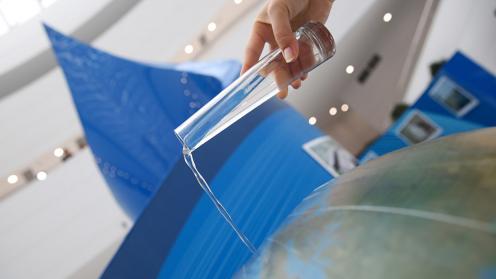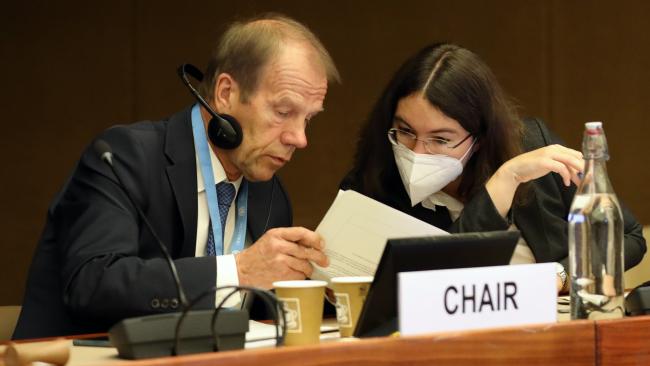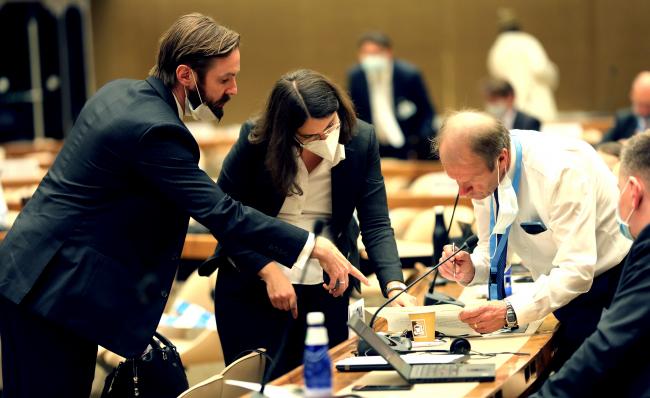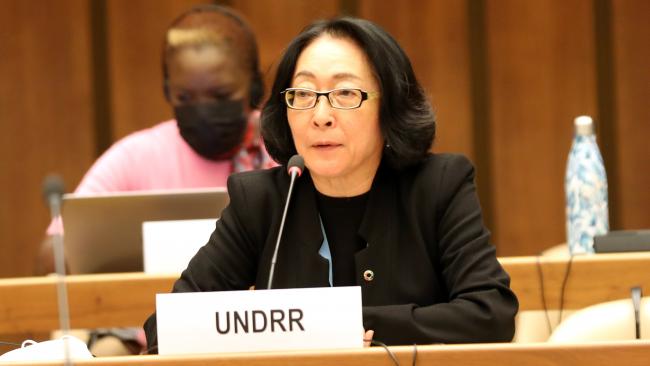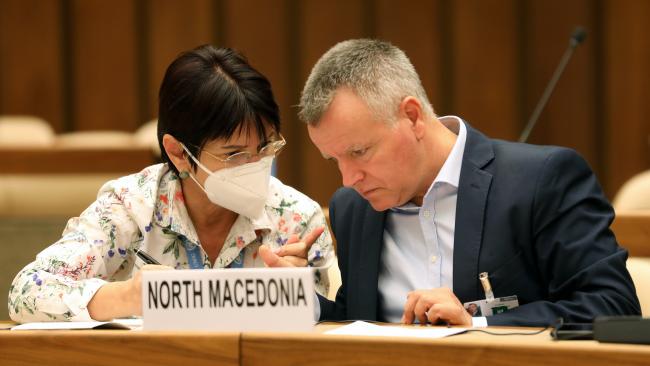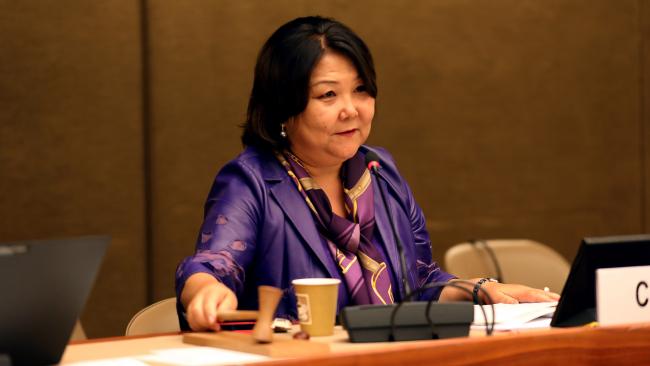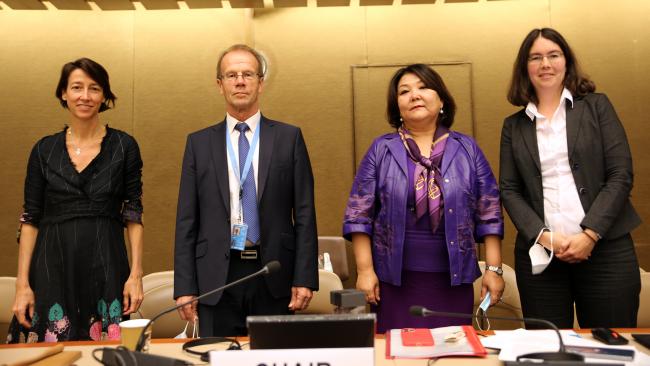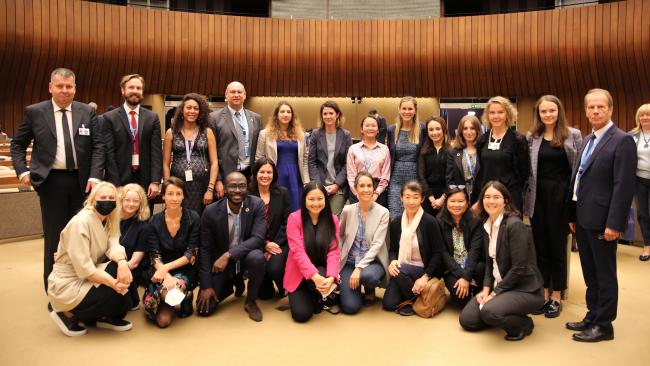On a busy final day, MOP9 to the Water Convention successfully concluded its deliberations, adopting decisions aiming to advance transboundary water cooperation.
Highlights of the day included:
- The adoption of the Programme of Work 2022-2024, which includes a total of seven thematic areas aimed at supporting countries and basins worldwide in enhancing cooperation, from adaptation to climate change to the application of the water-food-energy-ecosystems nexus approach;
- Discussion on the financing of the Convention, including ways to scale up non-earmarked contributions and adoption of targets for a more sustainable and predictable funding of the work under the Convention; and
- Review of the current partnerships for the implementation of the Convention with organizations such as the Global Environment Facility, the Geneva Water Hub, the International Center for Integrated Mountain Development and the Global Water Partnership, and strong commitments to cooperation expressed by several new partners.
Participants had a discussion on how to mainstream water and the benefits of transboundary cooperation into national climate policies. Mami Mizutori, Special Representative of the Secretary-General for Disaster Risk Reduction and Head of United Nations Office for Disaster Risk Reduction, stressed the importance of investing in disaster risk reduction and early warning systems, including for water related disasters. Andrew Roby, Foreign Commonwealth and Development Office, UK, called for an urgent increase in climate finance, invited participants to the UN Framework Convention on Climate Change COP 26 in Glasgow next month to make the voice of the water community heard, and urged actively disseminating good practices on water and climate change. Cong Nguyen Dinh, Mekong River Commission, shared his experience on cooperating under the Water Convention’s Global network of basins working on climate change adaptation. Following an address by Alexandra Moreira, Secretary General, the Amazon Cooperation Treaty Organization (ACTO), the MOP welcomed the Amazon basin to the Global network. The Mono River basin also expressed their interest to join the network.
Participants reviewed the activities of the Joint Expert Group on Water and Industrial Accidents, including on strengthening mine tailings safety and prevention of water related pollution. They also appreciated rich guidance materials prepared by the group.
Talking about the Convention’s provisions on joint monitoring and assessment, participants agreed on the need to update the existing strategic documents in this area and provide tailored assistance to transboundary basins where riparian countries are interested in establishing joint monitoring, and exchange of data and information.
During the last day Parties also:
- Elected the Bureau members for the next triennium, welcoming Ghana as a new Bureau member;
- Accepted Slovenia’s proposal to host MOP10 in 2024 and the invitation of Estonia to celebrate the 30th anniversary of the Water Convention in Tallinn in June/July 2022;
- Listened to an overview of the work of the International Water Assessment Centre, hosted by Kazakhstan; and
- Formalized the procedure for proposing to host future MOP sessions.
Kazakhstan handed over the chairmanship of the Convention to Estonia for the next triennium and elected Harry Liiv, Deputy Secretary General, Ministry of the Environment, Estonia, as new Chair of the MOP.
During the closing plenary, Aliya Shalabekova, Vice Minister of Ecology, Geology, and Natural Resources, Kazakhstan, via video address, underscored cooperation on the sustainable management of transboundary water resources as key for security and peace at regional and global levels. She encouraged all countries not yet Parties to the Convention to start the accession process.
Tõnis Mölder, Minister of the Environment, Estonia, via video address, underscored that the COVID-19 pandemic led to increased use of digital solutions, expressing hope that, in the coming years, digital solutions will also be utilized for transboundary water management. He expressed satisfaction with the integration of climate change issues in the new programme of work of the Convention.
Chair Zhanar Aitzhanova, Ambassador Extraordinary and Plenipotentiary, Permanent Representative, Permanent Mission to the UN, Kazakhstan, congratulated all delegates, the Government of Estonia, and the Water Convention Secretariat on a successful meeting. She noted that Kazakhstan is very proud that during its presidency, three new Parties, Ghana, Guinea-Bissau, and Togo, joined the Convention. She expressed hope that the Water Convention will be a universal instrument in the future and gaveled MOP9 to a close at 4:53 pm.
To receive free coverage of global environmental events delivered to your inbox, subscribe to the ENB Update newsletter.
